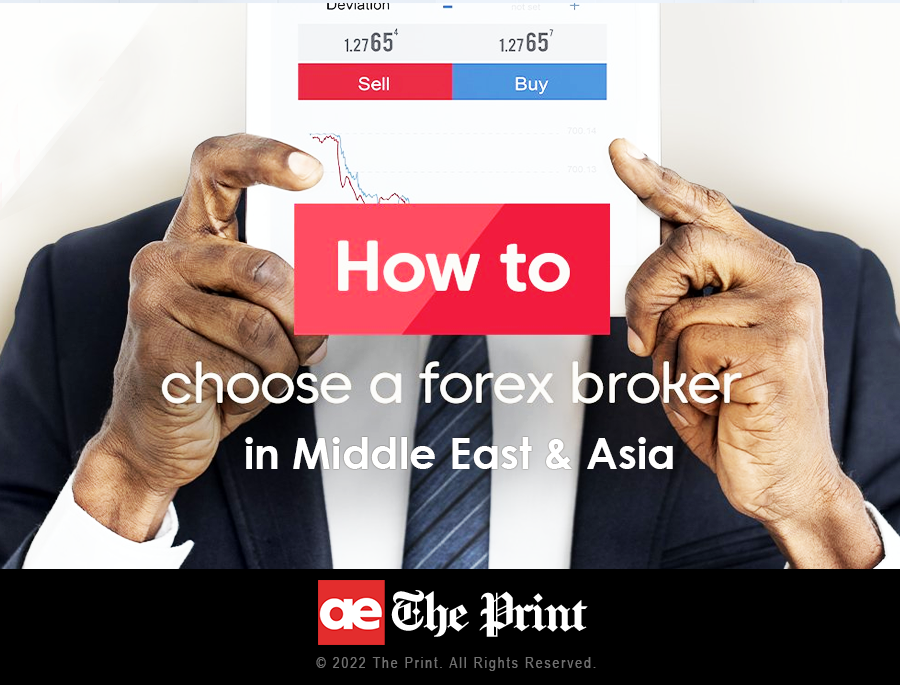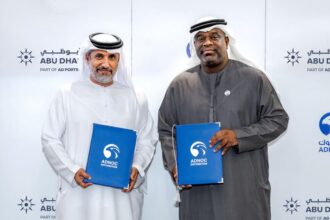Introduction
When it comes to choosing a forex broker, there are a number of factors to consider. In this blog post, we will look at some of the key considerations for choosing a broker in the Middle East & Asia. We will also provide an overview of three of the best brokers in this region.The Different Types of Forex Brokers.
Market Maker Brokers
A market maker broker is a type of forex broker that provides liquidity to the markets by making a two-way quote for each tradeable instrument. In other words, they buy from one trader and sell to another, acting as the middleman in each transaction. Market maker brokers typically offer fixed spreads and may charge a commission on each trade.Examples of market maker brokers include: -Saxo Bank-Pepperstone-Oanda
ECN and STP Brokers
ECN stands for “Electronic Communications Network”, and these brokers connect their clients directly to the interbank market without intervention. This means that trades are executed at the best available prices, but spreads are variable and tend to be wider than with market makers. ECN brokers typically charge a commission on each trade.STP stands for “Straight Through Processing”, and these brokers also connect their clients directly to the interbank market. However, unlike ECN brokers, STP brokers do not charge a commission but make their money through wider spreads. Examples of ECN/STP brokers include:-FXCM-Alpari-FxPro
Social Trading Brokers
Social trading is a relatively new concept that allows traders to copy the trades of more experienced or successful traders. This is done via a social trading platform which connects traders and provides information on performance statistics. Some social trading platforms also allow traders to communicate with each other directly. Social trading platforms usually charge a commission on each trade executed by the copied trader.Examples of social trading platforms/brokers include:-eToro-ZuluTrade
What to Consider When Choosing a Forex Broker.
Regulation
When it comes to online trading, one of the first things you need to consider is the regulatory environment of the broker you are thinking of working with.There are a number of regulatory bodies around the world that oversee forex brokers and their activities. Some of the more well-known ones include the US Commodity Futures Trading Commission (CFTC), the UK Financial Conduct Authority (FCA), and the European Securities and Markets Authority (ESMA). Each of these organizations has different requirements for forex brokers operating in their jurisdictions. For example, brokers in the US must be registered with the CFTC and must comply with strict financial regulations. Similarly, brokers in the UK must be authorized by the FCA and must meet certain standards when it comes to things like client money protection.So, before you open an account with a forex broker, make sure that they are properly regulated by a reputable organization. This will give you some peace of mind that your broker is not a fly-by-night operation and that they are subject to some degree of oversight.
Trading Conditions
Another important consideration when choosing a forex broker is what kind of trading conditions they offer. This includes things like spreads, leverage, and order execution type.Spreads are simply the difference between the bid and ask price of a currency pair. The tighter the spread, the less “slippage” there is when executing trades. Slippage is when you get filled at a worse price than what you were expecting due to market volatility. So, all else being equal, tighter spreads are better. Leverage refers to how much “bang for your buck” you get when making trades. For example, if a broker offers 100:1 leverage on major currency pairs, that means you can trade $100 worth of currency for every $1 that you have in your account. Leverage can be a double-edged sword though because while it can amplify your gains, it can also amplify your losses if things go against you.Finally, order execution type refers to how your orders are actually filled by your broker. There are three main types: market orders, instant execution orders, and request execution orders. Market orders are simply filled at whatever price is currently available in the market (the best available bid or ask price). Instant execution orders are also filled at whatever price is currently available but with a guarantee that your order will not be requoted at a worse price (which can sometimes happen with market orders). Request execution orders allow you set your own desired bid or ask price but there is no guarantee that your order will actually be filled at that price – it all depends on whether there is enough liquidity in the market at that time to fill your order at your desired price level.”
The Best Forex Brokers in the Middle East & Asia.
XM Group
XM Group is a leading online broker that offers trading in a wide range of financial instruments including forex, CFDs, stocks, futures, and options. The company is regulated by several financial authorities around the world, including the Financial Conduct Authority (FCA) in the UK and the Cyprus Securities and Exchange Commission (CySEC). XM Group provides negative balance protection and offers 24/5 customer support in multiple languages.
FBS
FBS is an international brokerage firm that offers online trading in a wide range of financial instruments including forex, CFDs, stocks, indices, commodities, and options. The company is regulated by the International Financial Services Commission (IFSC) and provides negative balance protection to its clients. FBS also offers 24/7 customer support in multiple languages.
Orfinex
Choosing the right forex broker is essential to your success in trading. There are many factors to consider when choosing a forex broker, including regulation, spreads, leverage, customer service, and account types. Orfinex is one of the most trusted forex brokers in Middle East & Asia. Orfinex is growing fast in popularity due to their low spreads and no commission. They offer no slippage and no requotes. Orfinex is regulated by the Central Bank of UAE and is a member of the Dubai Gold & Commodities Exchange. Orfinex offers a wide range of account types, including micro, standard, and VIP accounts. Leverage is up to 1:500 and spreads start at 0.0 pips. Customer service is available 24/5 in English, Arabic, and Chinese. Orfinex also offers a free demo account so you can try out their platform before trading with real money.
OctaFX
OctaFX is a leading online broker that offers trading in forex, CFDs, commodities, indices, and cryptocurrencies. The company is regulated by the Financial Services Authority (FSA) of Saint Vincent and the Grenadines and provides negative balance protection to its clients. OctaFX also offer 24/5 customer support in multiple languages.
Conclusion
When choosing a forex broker, it is important to consider the different types of brokers available, as well as what factors are important to you. Regulation, trading conditions and customer service are all important factors to consider. The best forex brokers in the Middle East & Asia include XM Group, FBS, Orfinex and OctaFX.















